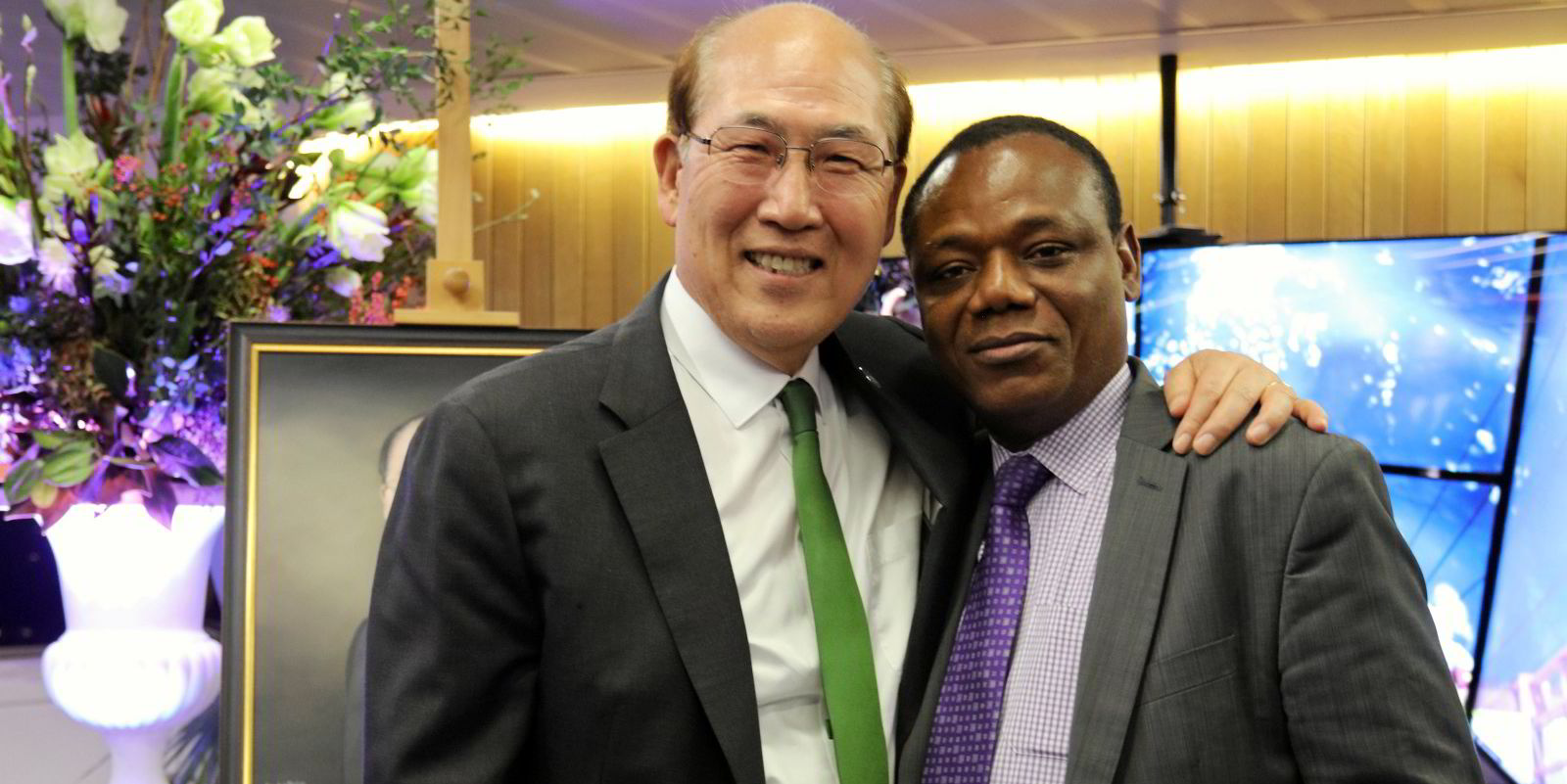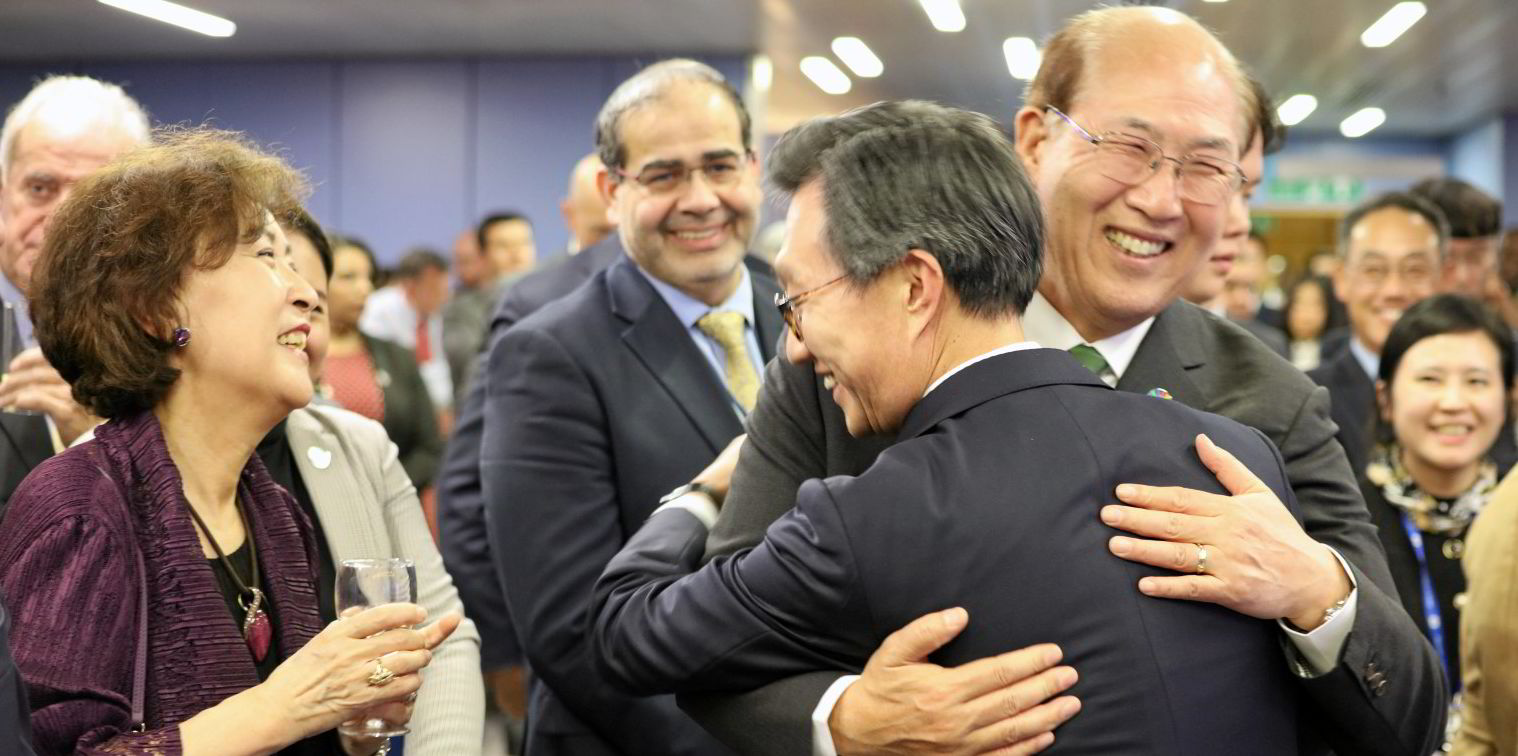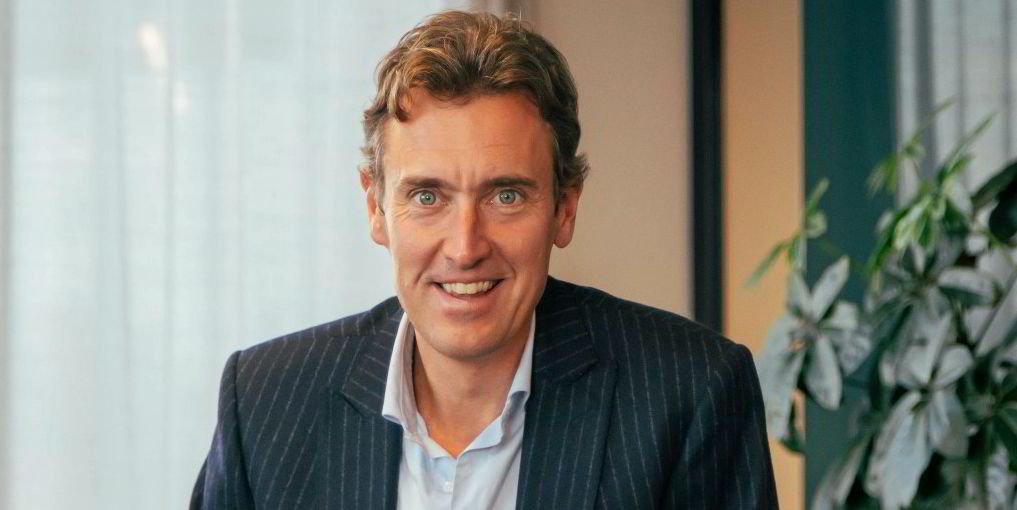2023 will go down as the year of the deal: agreed mergers, the division of spoils and political agreement on an unprecedented global scale. And all were inspired by charismatic individuals who are shaping the industry’s future.
The year ended as it had begun: a major company transaction that caught the eye for the manner of its execution and its potential impact on markets.
Star Bulk Carriers made a $500m swoop for smaller listed rival Eagle Bulk Shipping that will create a market-leading dry bulk specialist with a market value of over $2bn when the transaction is completed in the first half of 2024.
Star Bulk CEO Petros Pappas alongside his long-time former investment banking colleague Hamish Norton led a deal that takes out a rival head that has built a strong reputation in recent years for high operational standards under the stewardship of Gary Vogel.
Both clients and investors will be watching closely to see how Star Bulk uses the latest expansion of its shipowning and operating platform to offer more efficient services and better shareholder returns.
2023 opened with the titanic battle between crude tanker heavyweights John Fredriksen and Alexander Saverys still locked in combat. Fredriksen was attempting one of his audacious full-court press takeover attacks to snatch the tanker fleet from the Saverys family’s prize asset Euronav.
The battle ebbed and flowed; Fredriksen built a big stake in publicly listed Euronav in an attempt to force negotiations, only for the Saverys family to leverage themselves up the eyeballs to block the Norwegian magnate.
When the Frontline boss trumped that stake — even by a small amount — the two rivals reached a Mexican standoff, locked into what could be termed an aggressive stalemate.
As the year rolled on, both sides attempted to put a public gloss on the unresolved situation. Euronav’s Brian Gallagher poured warm balm on their relationship with Frontline CEO Lars Barstad.
“We’ve got two very good shareholders. Lars is the third biggest, so I’m very proud to see you stand next to me,” said Gallagher, who ultimately lost his board place at the end of the saga.
It was an unsustainable stalemate for either side, so a solution was not a surprise. But it was a bold deal for both sides. Saverys agreed to sell 24 of the company’s VLCCs to Frontline, which must have been a bitter pill. Yet Fredriksen paid a full price of $2.4bn for the vessels, arguably making it the biggest sale-and-purchase deal ever.
Ultimately, both sides can be pleased that the standoff was resolved, and with that, they came away with their own result. For Fredriksen, it is a bet on today, an investment in a key market with few newbuildings that are expected to perform well in the next few years.
For Saverys, it is more of a bet on tomorrow. While Euronav remains a major tanker player, it now has over $2bn to invest in the use of those fuels of the future, hydrogen and ammonia.
As Saverys told us recently: “Our ambition is clear. This is also one of the reasons we wanted to keep Euronav in our hands in Europe and with the strategy we have in front of us.”
The decarbonisation agenda has risen to the top of other major shipowners, not least Evangelos Marinakis, head of the Capital Group. Little by little, he has been building a $6.5bn bet on the green revolution with investments in around 57 new ships.
With his executive team led by Jerry Kalogiratos, they are spending on LNG-ready container ships, dual-fuel tankers and even the world’s largest liquified CO2 carrier newbuildings, among other vessels.
Big change at IMO
It is a commitment that shows how fast the industry is moving, which until recently was accelerating ahead of national governments and shipping’s unique international regulator for safety and the environment, the International Maritime Organization.
Long complained of — if not ridiculed — for its sloth, the IMO this year showed that its 175 member nations can come together dynamically. Against the expectations of many, it took the unanimous decision this summer to ramp up the level of ambition for the decarbonisation of shipping.
Tristan Smith and his colleagues at UMAS in London called the decision at MEPC 80 “a quantum leap in ambition and speed of transition”. It has targets of reducing greenhouse gas emissions to zero at or around 2050 compared with 2008, 20% to 30% by 2030, and 70 to 80% by 2040.
The deal is far from perfect, with the devil in the details. The rate of decarbonisation is not fast enough to be in line with IPCC or SBTi projected trajectories to keep global warming around 1.5℃. It is also not yet legally binding, with one OECD country complaining privately that it is riddled with loopholes and potential get-outs that will devalue its worth.
Before agreement was reached after two weeks of talks, and endless earlier negotiations, few believed a credible agreement would be reached, let alone a unanimous one. Great credit must go to the chairman of the MEPC, Liberia’s Harry Conway for steering progress.
A decisive force
But most agree that the key to the deal, which will shape the future of the industry, was IMO secretary general Kitack Lim. It is hard to imagine now that when first elected eight years ago, decarbonisation was not something firmly at the top of the shipping agenda.
The 2015 Paris Agreement delegated responsibility to the IMO, but few expected ambitious action. And for the first few years that was the case. More recently, as political pressure and industry action have accelerated, the IMO and its member nations needed to catch up.
Lim’s strength of character, his diplomatic skills, and his power of friendship have been key to building alliances. The difficulties in achieving such were played out in public view at COP28 in Dubai recently.
Arsenio Dominguez, who succeeds the Korean at IMO at the start of 2024, said Lim had always focused on supporting the seafarer.
“You can tell by the results. He came in when we were already working on what became the initial strategy on GHG [greenhouse gases]. You had the implementation of IMO 2020, which was of course the global sulphur cap and the entry into force of the ballast water management convention.
“We can't forget the impact that the COVID pandemic had on the organization, the completely unexpected. The organisation had to continue to adapt to new methods of working to continue to progress its agenda when the world had shut down.
“And he always focused on moving that agenda forward… it’s a fundamental piece of why we are at a so successful stage.”
Key to Lim’s success has been in bringing together the developed and developing world as a Korean diplomat. The fact that the new IMO climate deal envisions a “just and equitable transition” is a testament to that.
That is a fitting tribute as Lim now heads into retirement. And that is why he is TradeWinds Person of the Year.






